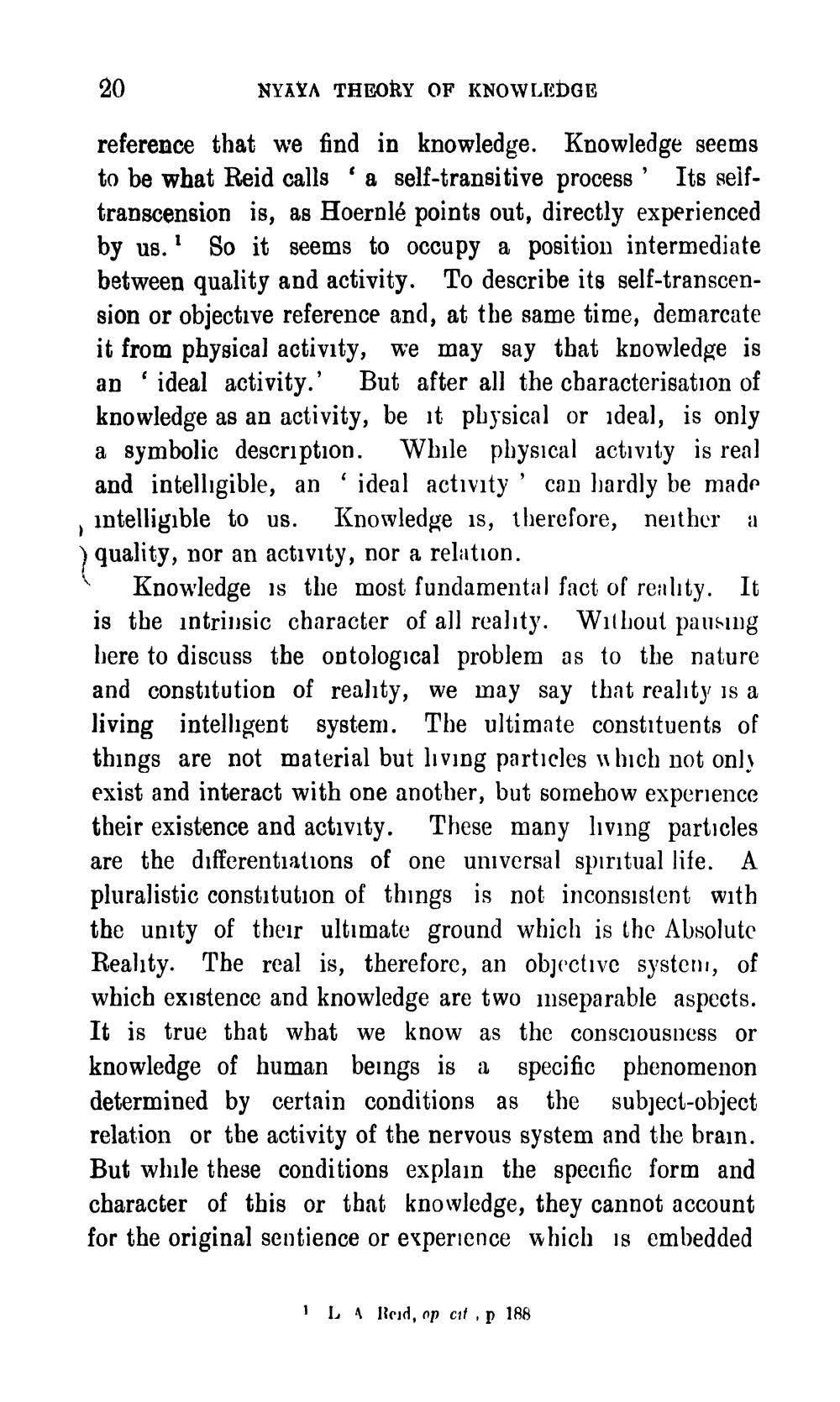________________
NYAYA THEORY OF KNOWLEDGE
reference that we find in knowledge. Knowledge seems to be what Reid calls 'a self-transitive process' Its selftranscension is, as Hoerplé points out, directly experienced by us.' So it seems to occupy a position intermediate between quality and activity. To describe its self-transcension or objective reference and, at the same time, demarcate it from physical activity, we may say that knowledge is an ideal activity.' But after all the characterisation of knowledge as an activity, be it physical or ideal, is only a symbolic description. Wbile physical activity is real and intelligible, an ideal activity' can hardly be made intelligible to us. Knowledge is, therefore, neither a ) quality, nor an activity, nor a relation.
Knowledge is the most fundamental fact of reality. It is the intrinsic character of all reality. Without pausing bere to discuss the ontological problem as to the nature and constitution of reality, we may say that reality is a living intelligent system. The ultimate constituents of things are not material but living particles u bich not only exist and interact with one another, but somehow experience their existence and activity. These many living particles are the differentiations of one universal spiritual life. A pluralistic constitution of things is not inconsistent with the unity of their ultimate ground which is the Absolute Reality. The real is, therefore, an objective systemi, of which existence and knowledge are two inseparable aspects. It is true that what we know as the consciousness or knowledge of human beings is a specific phenomenon determined by certain conditions as the subject-object relation or the activity of the nervous system and the brain. But while these conditions explain the specific form and character of this or that knowledge, they cannot account for the original sentience or experience which is embedded
1
L
A Reid, op cit, p 188




